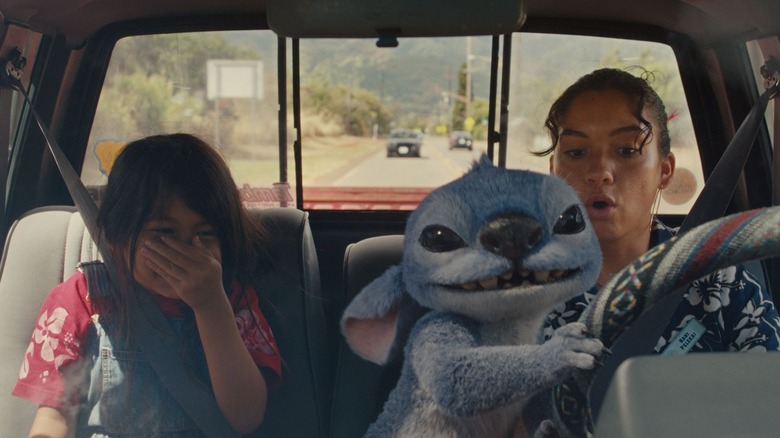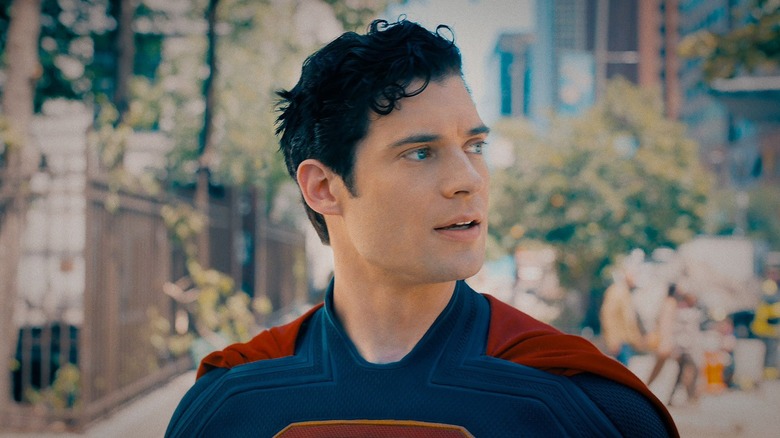Why The Summer 2025 Box Office Was A Major Step In The Wrong Direction
It's been a rollercoaster ride at the box office over the last handful of years, but for many in the industry, a saying emerged around 2023: "Survive until 2025," or something to that effect. Essentially, theater owners and Hollywood studios saw 2025 as the true return-to-normal moment for the industry following the Covid-19 pandemic and 2023's dual Hollywood strikes, with both the SAG-AFTRA and WGA going on strike for months on end. Unfortunately, however, summer '25 didn't bring with it the riches that were promised on paper.
According to Variety, the domestic summer box office will not reach the $4 billion mark, despite previous predictions suggesting that would happen. As of this writing, the summer season has brought in more than $3.5 billion, but with a weak August slate that will be rounded up by the likes of "The Toxic Avenger" and "The Roses" there is no chance of making up that near $500 million gap between now and Labor Day weekend (which is traditionally when the summer movie season is considered over).
The $4 billion threshold has only been crossed one time since 2020, back when theaters all around the world had to shut their doors due the pandemic. That took place in 2023 when the Barbenhemier phenomenon saw both "Barbie" and "Oppenheimer" reach unfathomable heights at the box office. In the end, "Barbie" made well over $600 million domestically and $1.4 billion globally, with "Oppenheimer" pulling in $310 domestically and nearly $1 billion across the planet. Summer 2023 also saw unexpected breakouts such as "Sound of Freedom" ($182 million) and, to a lesser but no less important extent, "Talk to Me" ($44 million). Still, that was down from 2019, at which point the box office peaked with ticket sales reaching $4.38 billion.
Unfortunately, summer '25 has seen far more disappointments than surprises. Disney's "Lilo & Stitch" is Hollywood's only $1 billion hit this year, having earned just shy of $422 million domestically. The number two spot is occupied by James Gunn's "Superman" ($347 million domestic/$605 million worldwide).
Movie theaters and Hollywood need to brace for the new normal
The bigger problem is that so many of the movies that, on paper, were set to deliver the goods fell well short of expectations. Most notably, "Thunderbolts*" ($190 million domestic/$382 million worldwide) and "The Fantastic Four: First Steps" ($257 million domestic/$490 worldwide) both fell far below what we've come to expect from the Marvel brand. Indeed, even "Superman" (at just north of $600 million globally) proves that superhero films are no longer the automatic must-see events they once were for audiences.
Then there's Pixar's "Elio," which made just $73 million domestically and $152 million worldwide, making it the lowest-grossing Pixar movie ever. By contrast, last year's "Inside Out 2" grossed $1.69 billion, briefly becoming the highest-grossing animated movie of all time. That was until China's "Ne Zha 2" took the crown with an astonishing $2.15 billion to date. However, the vast majority of that money came from China, as U.S. audiences were largely indifferent to the film despite it having an impressive cast for the English-language version released stateside by A24.
Even massive successes like "Jurassic World Rebirth" ($844 million worldwide) made roughly 60% of their money overseas. In other words, the big hits weren't there to lift the domestic box office as much as theater owners and Hollywood studios had hoped. Sure, we had the surprise cultural phenomenon "KPop Demon Hunters" topping the carts with $19.2 million, but that's relatively small in the grand scheme of things, and it certainly wasn't enough to make up for this summer's biggest blockbusters falling short.
Sad to say, this all lines up with what we're coming to learn about the new normal for the movie business. A recent report revealed that the box office may never fully recover from the pandemic, with higher ticket prices left to make up for declines in overall sales. It's a new reality that both theaters and Hollywood at large are going to have to adjust to. The days of regular $4 billion summers appear to be behind us.

